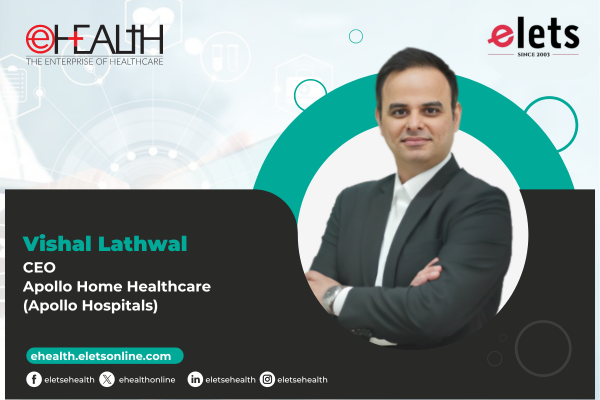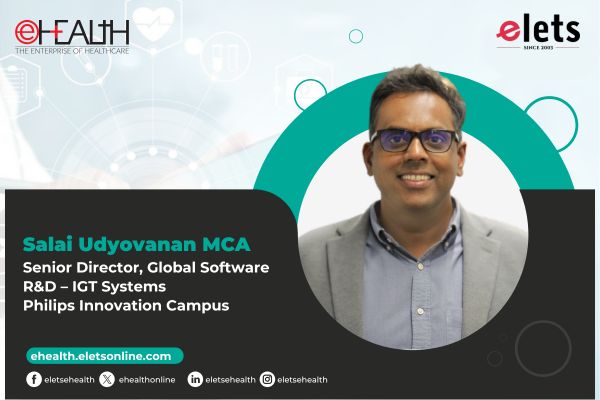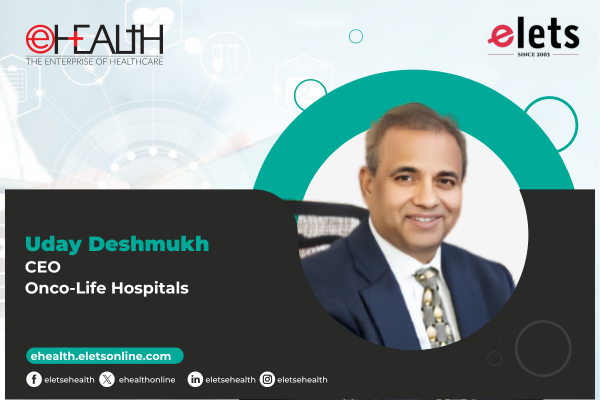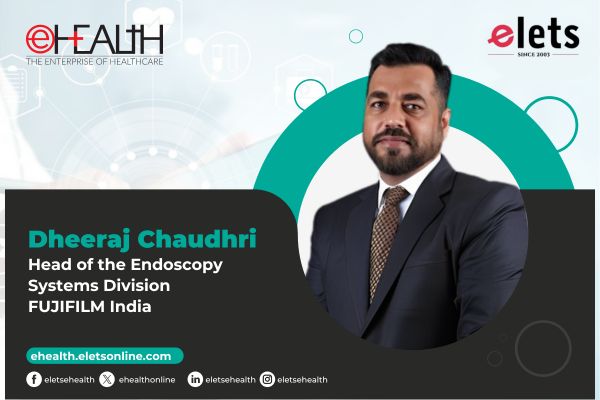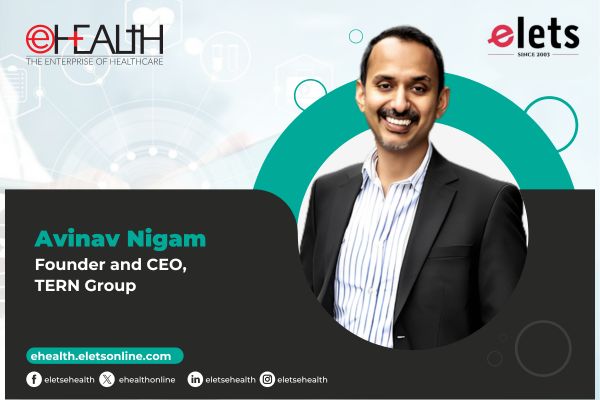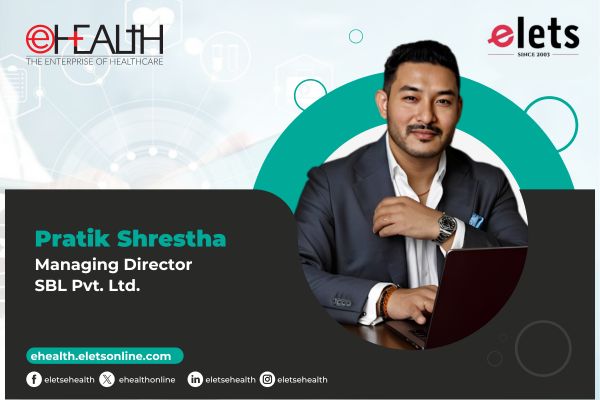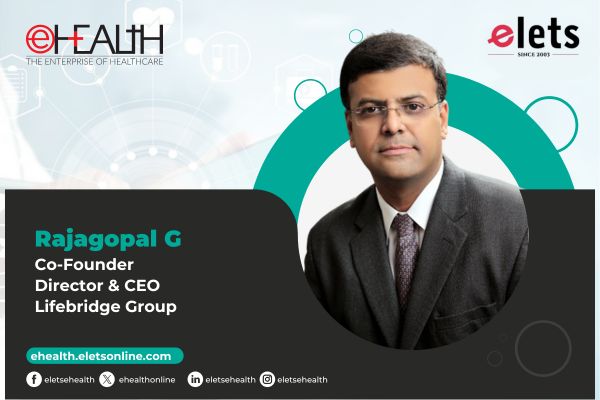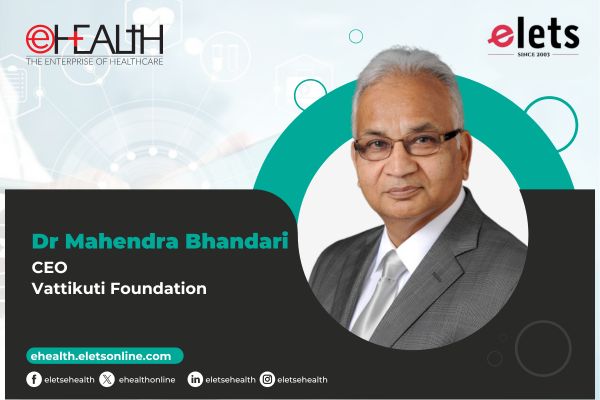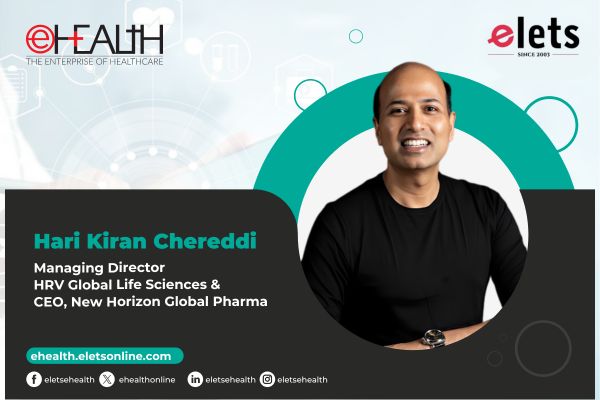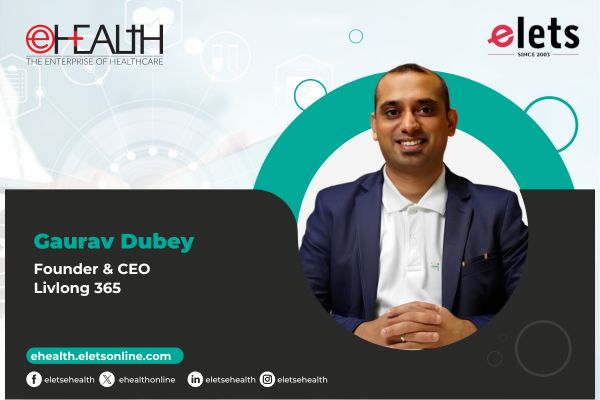
Robotics and automation hold the potential to revolutionise healthcare operations. Their ability to efficiently perform repetitive tasks, assist in surgical procedures, enhance patient care, and manage hospital logistics can reshape the entire healthcare ecosystem shared Nakul Jain, Director – Solutions, Wadhwani AI with Kaanchi Chawla of Elets News Network (ENN). Edited excerpts:
What potential do you see for emerging technologies like blockchain or virtual reality to revolutionize healthcare delivery, and are there any specific projects or initiatives in these areas that Wadhwani AI is exploring?
Emerging technologies like blockchain and virtual reality have immense potential to change healthcare delivery. Blockchain, with its decentralized and secure nature, can enhance data security, interoperability, and consent management in healthcare. It can allow the creation of a universal and accessible patient health record, reducing inaccuracies and enhancing data integrity. Similarly, virtual reality can transform several areas, like mental health therapy, surgical training, rehabilitation, and pain management. At Wadhwani AI, our primary focus is to harness the power of artificial intelligence to serve underserved populations in the country. While Blockchain and VR are not a part of our current work portfolio, we are open to exploring any new emerging technologies that align with our mission.

Are there any specific areas within healthcare delivery where you believe AI and technology have the potential to disrupt traditional models or practices, and what implications does this have for healthcare providers and professionals?
Artificial Intelligence has the potential to impact multiple areas of healthcare delivery. Screening and diagnostics have various use cases where AI can analyze images, videos, sound, and tabular data to identify diseases with incredible accuracy. It can also help with the planning of treatment regimens and care through predictive analytics and optimization algorithms, thereby facilitating personalized healthcare. Consistent, sustained, and quick patient monitoring and emergency response can be ensured through AI-driven wearable technology and telemedicine solutions. The implications of this disruption are game-changing not only for care seekers but also for providers. It demands immediate upskilling and an understanding of the evolving use of technology. We can also expect job roles to modify with heavy reliance on technology with a substantial increase in productivity.

With the growing concerns around cybersecurity and data privacy, how does Wadhwani AI prioritize safeguarding sensitive healthcare information while leveraging technology to drive innovation?
Data privacy and cybersecurity are major concerns in healthcare technology owing to a lot of sensitive data that is continuously generated in the ecosystem. At Wadhwani AI, we maintain rigorous internal data handling protocols and uphold the same standards when collaborating with external stakeholders. The institute has rolled out a detailed and robust policy around data security and privacy. We ensure that all our full-time employees and contractual workers receive comprehensive training on data handling protocols upon joining our organization. The institute also deploys third-party interventions for continuous staff training on topics like cybersecurity, cyber attack prevention, and mitigation. These measures have been ingrained in our institute’s work culture, fostering trust in our system while also nurturing an environment conducive to innovation and exploration.

How do you envision the role of healthcare professionals evolving in a technology-driven healthcare landscape, and what steps is Wadhwani AI taking to ensure that technology complements and empowers human expertise rather than replacing it?
In this evolving era, where technology is set to play a pivotal role in healthcare service delivery, it is crucial for the roles of providers and healthcare professionals to adapt and transform accordingly. They need to embrace technological advancements to effectively meet the changing needs of patients and the healthcare landscape. In addition to providing effective healthcare, professionals will now have the opportunity to serve as interpreters of AI-driven insights and managers of digital solutions. This will allow them to leverage technology to enhance their existing healthcare practices. At our institute, we adhere to a fundamental principle of incorporating a human-in-the-loop approach in our solution design. Hence, all our solutions are developed to complement and empower human expertise rather than substitute it. Our primary focus is to augment human capabilities, enabling healthcare professionals to make faster and more informed decisions, thereby expanding the reach and improving the quality of care provided.

In your opinion, what are the ethical implications and considerations that need to be taken into account when deploying AI and technology in healthcare, and how is Wadhwani AI ensuring responsible and inclusive innovation?
The use of artificial intelligence in healthcare bears several ethical implications and considerations. These encompass safeguarding privacy and consent, mitigating bias in AI algorithms, maintaining transparency, and ensuring inclusivity. These concerns arise not only during deployment but also during data collection/procurement and AI/ML model training. The Wadhwani Institute for Artificial Intelligence is fully committed to the ethical use of AI. As a core principle, we integrate these considerations into every phase of our product life cycle, ensuring that our solutions are ethical, equitable, and just. We maintain utmost transparency with all the stakeholders involved, and we have established comprehensive internal guidelines that govern responsible and ethical practices in the design, development, and deployment of AI solutions.
How do you foresee the role of robotics and automation in transforming healthcare delivery processes, and what impact can it have on improving efficiency and patient outcomes?
Robotics and automation hold the potential to revolutionise healthcare operations. Their ability to efficiently perform repetitive tasks, assist in surgical procedures, enhance patient care, and manage hospital logistics can reshape the entire healthcare ecosystem. One clear advantage is the improvement in efficiency, as these technologies can operate continuously, reducing errors and enabling healthcare professionals to devote their time to more complex and intricate tasks. This, in turn, can directly impact the timelines and quality of care delivered to patients.
Can you elaborate on Wadhwani AI’s role in the G20 and their collaboration with the Ministry of Health and Family Welfare in deploying its solutions?
The Ministry of Health and Family Welfare has established the e-Health AI Unit, in collaboration with Wadhwani AI, to drive its AI initiatives. A multidisciplinary team of AI/ML scientists, engineers, product managers, designers, and public health experts contribute towards the identification, design, development, and deployment of multiple solutions that leverage artificial intelligence for social good.
During the G20 3rd Health Working Group Meeting in Hyderabad, we presented cutting-edge AI solutions developed by the e-Health AI Unit, that showcase the practical implications of artificial intelligence in the public health sector. Multiple solutions under the themes of Clinical Decision Support system (CDSS), media scanning for outbreak prediction, image-based screening and diagnostics, tuberculosis, anthropometry, and frontline worker assistance were on display. Visitors to our stall were able to engage with and learn about these innovative solutions firsthand.
Be a part of Elets Collaborative Initiatives. Join Us for Upcoming Events and explore business opportunities. Like us on Facebook , connect with us on LinkedIn and follow us on Twitter , Instagram.
"Exciting news! Elets technomedia is now on WhatsApp Channels Subscribe today by clicking the link and stay updated with the latest insights!" Click here!






